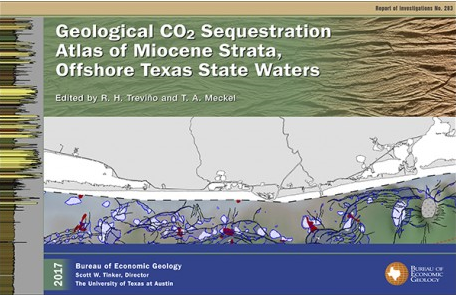Research Theme C
Unconventional EOR
Under this theme we will continue to study the technical changes that might occur to current CO2 EOR operations when additional large volumes of CO2 are captured and used for CCUS. We consider both the changes in EOR operations that might be possible if more CO2 was available and the possible responses for transparent documentation of storage monitoring and accounting that might be needed to certify the storage aspect of a CCUS project.
Research under this theme anticipates:
- Modeling reservoir performance at different CO2 utilization ratios (under new DOE funding). Building from literature and setting up optimized follow-on projects, we will compare CO2 –EOR flood performances when developed through different CO2 injection strategies at one or more calibrated but idealized oil fields. Strategies include CO2 direct injection (DI), (where CO2 is the only fluid injected into the reservoir) and different water alternating gas (WAG) ratios. We will investigate possible strategies in injection and production rates over time and trade-offs between EOR operations and storage projects.
- Analysis of carbon balance (under new DOE funding): We will frame the boundaries of the EOR system including the energy intensive components not typically included in carbon balance studies, such as compression and water handling, to evaluate how the variability of CO2 utilization ratios for the different injection scenarios affects the identified components and how EOR and saline storage can be co-managed as CCS matures. We will develop strategies that are conducive to lowering the EOR carbon balance by evaluating the interplay between energy intensive components and CO2 utilization ratios.
- Seek opportunities to evaluate and test CCUS options, barriers, and benefits in diverse settings. Possible topics include EOR in areas and reservoirs not widely used such as offshore and in fractured rocks or other atypical pore systems, as well as expansion of EOR to residual oil zones. This task connects to theme D, monitoring methods.



